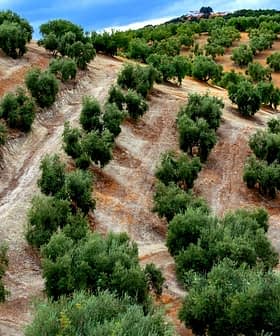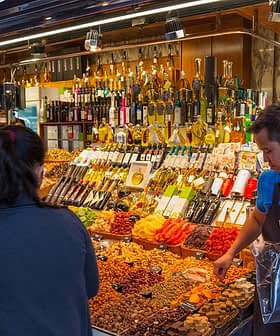The evolving nature of the olive oil market, persistently low prices, and the consequences of the Covid-19 pandemic have fueled the formation of a new organization in the Spanish province of Córdoba.
The Consejo del Olivar de Córdoba (Córdoba Olive Council) is open to members of the entire sector, from local administrative entities and small farmers to university researchers, oil mills, bottling companies and professional associations, among others.
We all must be a part of it and perceive (the Córdoba Olive Council) like an instrument to together develop and defend our olives and our olive oils.
The Diputación de Córdoba, the province’s local governing authority, recently hosted the first meeting of the new organization. The province’s president said its goal would be to develop a series of long-term strategies and revival plans for one of the main drivers of the local economy.
“Its founding has been an absolute necessity, since we are aware of the relevance of olives for the whole province, being the main source of development and income in many municipalities,” Antonio Ruiz, president of the province, said.
See Also:Olive Oil Business NewsAfter Jaén, Córdoba is the second-largest olive oil-producing province in Andalusia, and all of Spain.
The goal of the new organization is also to offer a tool for seamless communication among the numerous different participants in the olive oil production chain.
“We believe the council will include all those that have something to say, having as goals the economic development of the sector and the promotion of the olive-growing culture, while facilitating dialogue among farmers associations, cooperatives, oil mills and municipal authorities,” Ruiz said during his opening statement at the meeting.
So far, the Córdoba Olive Council already has a number of prominent members from the sector, including all of Spain’s major farmers’ associations, the Spanish Association of Olive Municipalities (AEMO), representatives from four local Protected Designation of Origin farms (Baena, Lucena, Montoro-Adamuz and Priego de Córdoba) and the University of Córdoba.
Each of these members will be responsible for taking on one of the six main areas of intervention that the council has been tasked to solve.
The Association of the Young Farmers (Asaja) will coordinate the activities to improve the innovation and competition of provincial olive oils and AEMO will work on the mountain olive grove project, which supports and promotes several of the province’s PDO olive oil producers.
Meanwhile, the Union of Small Farmers (UPA) will spearhead issues pertaining to the European Union’s Common Agricultural Policy and the Coordinator of Agriculture and Livestock Organizations (COAG) will focus on olive oil prices and the overall market.
The University of Córdoba will focus its efforts on improving olive oil quality, while local oil mills are tasked with promoting the province’s olive oil and preserving its olive oil culture.
“This multifaceted composition will not bring controversy because the new entity is not a tool for disagreements, it is an institution for promoting dialogue and consensus, and it will not be politically exploited,” Ruiz said.
“We need to stick together and with the olive sector because we all understand its relevance,” he added. “We all must be a part of it and perceive it like an instrument to together develop and defend our olives and our olive oils.”









